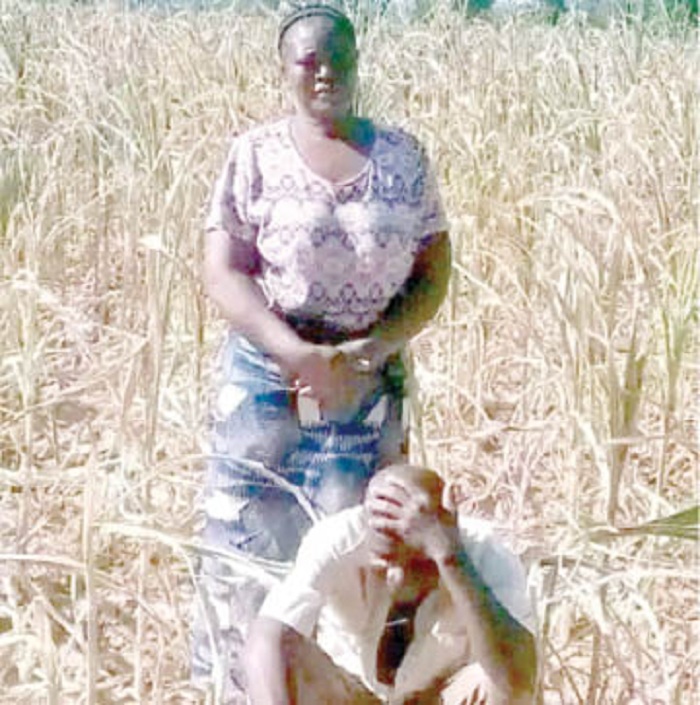ISAAC SHOBAYO writes on the lingering attacks on rural communities in some parts of Plateau State, the effect it is having on food production in the state, and the government’s response to this challenge.
THE protracted attack on rural communities in some parts of Plateau State for more than two decades has compelled many farmers to give up farming in search of other means of livelihood. The state’s agriculture sector is currently going through a crisis occasioned by assault by terrorists often reported in the news as ‘gunmen.’ Many in the affected communities can no longer assess their farms for fear of being killed by the marauders.
As a result of this, the state cannot maintain its once enviable position as one of the leading food baskets of the nation. This veritable source of livelihood has been destroyed to a large extent and families have been displaced. This has caused local economies to suffer and food production to plummet.
Aside from the abundant mineral resources that are found almost in every part of the state, agriculture is also one of the key components of the state economy. Among the primary crops grown in the Plateau State are Irish potatoes, sorghum, corn, rice, among others.
It is, however, regrettable that the sustained attacks have significantly diminished the state’s ability to maintain its position as one of the leading producers of these crops.
Though these attacks are frequently described as farmer and herder clashes, many are of the opinion that these are terrorist attacks. Observers have severally argued that it is a misnomer to describe a situation where innocent families are attacked and slaughtered on their farms or slain while they slept as a “conflict between farmers and herders.”
Quite a lot of farmers have been demoralised. A cross-section of them in this category who spoke with the Nigerian Tribune recently at one of the internally displaced persons (IDPs) camps in the Bokkos Local Government Area of the state said they had lost interest in farming as a result of their miserable experiences.
A woman named Habila Danjuma, who lost her husband and two children during a midnight raid by the terrorists in her village, claimed that in addition to that traumatic event, the family farm and that of others were destroyed in a single night. She added that there were other instances where harvested crops were either burnt or carted away. At other times, people were killed while working on their farms.
“Going to the farm has turned into a nightmare for me; right now our community needs security personnel. We need protection to return to our communities because there are those who return and still suffer the same fate,” she lamented.
Apparently aware of the danger this pathetic situation poses to the state’s economic and human survival, the state governor, Governor Caleb Mutfwang has been attempting to address the matter with a multifaceted strategy. From all indications, both the insecurity and restimulation of interest of the people in farming are being tackled simultaneously.
Given the state government’s resolve to return those displaced from their communities to their ancestral homes before the next planting season and the fact that security is critical to agriculture’s survival in the face of ongoing attacks, findings revealed that the government has started building security posts and supporting the Federal Government’s efforts to establish mobile police barracks in conflict areas.
As part of efforts to improve security in some of the unstable rural areas, the governor and a few state security chiefs recently visited the Gashish District, Barakin Ladi Local Government Area, Mobile Training Centre, and the proposed location of a Mobile Police Barracks in Kwall, Bassa Local Government Area, which is scheduled to open soon.
While in Gashishi, the governor declared: “I want to place on record our appreciation to the Inspector General of Police (IGP), Kayode Egbetokun, for his commitment to the security of lives and property in Plateau State. We value this gesture, and the Plateau State Government will ensure that all resources needed to make this facility operational are provided.”
Governor Mutfwang, who toured the facility, assured farmers in the state of the government’s unwavering support to help them return to their farmlands, particularly those abandoned due to insecurity. He pledged to ensure that all arable land is cultivated in the next farming season to boost food production and economic activities in the state.
As part of the measures being put in place to stimulate the interest of farmers, the state government had inaugurated a Security and Information Centre (SIC) aimed at facilitating public access to convey security-related information to the relevant authorities for prompt action. The centre was established by the Plateau State Information and Communication Technology Development Agency (PICTDA).
The governor, during the inauguration of the centre, highlighted that the initiative will serve as a channel for the government to swiftly obtain early warning signals and intervene promptly, while also gathering feedback on developmental matters.
To fast-track the return of those displaced to their ancestral homes, the Mutfwang-led administration has equally set up a Task Force on Resettlement of Internally Displaced Persons to facilitate the safe return of IDPs to their ancestral homes. The task force was equally mandated to establish the necessary requirements that would help in resetting the returnees and to ensure security measures were put in place.
The affected communities to be resettled are in Barakin-Ladi, Bokkos, Riyom, Mangy, and Bassa local government areas of the state.
As efforts are being made to return farmers to their ancestral homes ahead of the farming season, the government has commissioned 20 tractors and a disbursement of $250,000 to 10 communities under the Agro-Climatic Resilience in Semi-Arid Landscapes project (ACReSAL). This is to mark a pivotal milestone in tackling poverty, food security and fostering inclusive development.
Speaking with the Nigerian Tribune shortly before his deployment to the State Ministry of Youth and Sport, the former Commissioner for Information, Musa Ashoms, said the state government has recognised the enormity of the situation at hand and has been taking bold steps on all fronts to ameliorate the situation, especially towards agricultural revolution and poverty alleviation in the state, but quickly added that this cannot be achieved until adequate security is provided, saying this gives credence to why the government places a high premium on the security of the people.
According to him, in a move to transform Plateau State into a hub of agricultural productivity and economic development, Governor Mutfwang has set a precedent, adding that the initiatives reflect the governor’s commitment to leveraging agriculture as a tool for sustainable development and economic growth.
“The administration has concluded arrangements to procure 200 tractors through the Plateau Agricultural Development Programme (PADP) to strengthen mechanised farming under Agricultural Services and Training Centres (ASTC) in the state.
“The administration has reclaimed 6,000 hectares of farmland abandoned due to insurgency, displacing several households. The ASTC was engaged to cultivate the land, and improved seeds were distributed to support the farmers in their livelihood recovery journey.
“With the distribution of over 120 metric tonnes of improved seeds and 18,000 metric tonnes of fertilisers at more than 50% subsidised rates, the administration has reduced the financial burden on farmers, making agriculture more accessible and profitable.”
He added that a robust farmers’ database is being developed to ensure seamless input distribution and effective policy implementation, adding that the proactive approach will streamline interventions and target farmers directly with a view to addressing long-standing inefficiencies.
According to checks, Plateau State has the capacity to produce wheat twice a year, making it a possible centre for wheat production. In acknowledgement of this, Dr Gyang Bere, the Director of Press and Public Affairs to the governor, said the state has received 13 metric tonnes of wheat seed from the Federal Ministry of Agriculture and that mass production will start this dry season.
He hinted that the initiative is complemented by a Public-Private Partnership (PPP) at BARC Farms, where 500 hectares are being dedicated to wheat and feedlot enterprises, promising significant employment opportunities.
The identification of 3,000 hectares of irrigable lands and the formation of 3,500 farmer clusters will enhance productivity. Moreover, over 3,000 water sources, including mining ponds, have been identified, offering sustainable irrigation solutions.
“The state has been enlisted by the African Development Bank (AfDB) for the establishment of a Special Agro-Processing Zone. This gesture will address post-harvest losses and boost value addition for Plateau’s abundant fruits and vegetables,” he said.
To achieve food sufficiency, those who have been keeping an eye on current events, particularly government initiatives to support farmers, strongly believe that addressing insecurity head-on should be the first step. Nonetheless, there is a widespread belief that Plateau State can regain its proper position in agriculture and support the nation’s efforts to curb food hunger if there is appreciable security in the state, particularly in the rural areas.






